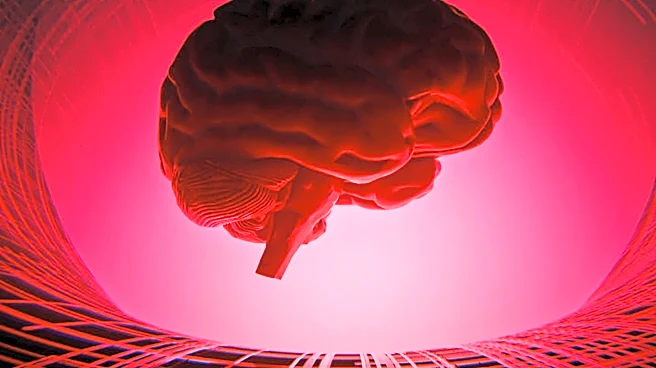What's Happening?
Masud Husain, a neurologist, has been sharing insights from his book 'Our Brains, Our Selves,' which examines how brain disorders affect personal identity. The book, which recently won the Royal Society
Trivedi Science Book prize, delves into the experiences of Husain's patients, such as Wahid, a bus driver who developed dementia with Lewy bodies and began experiencing hallucinations, and David, who became apathetic following two small strokes. Husain's work highlights the profound impact that neurological conditions can have on an individual's sense of self, offering a unique perspective on the intersection of brain health and personal identity.
Why It's Important?
Understanding how brain disorders influence personal identity is crucial for developing effective treatment and support strategies for affected individuals. Husain's research provides valuable insights into the psychological and emotional challenges faced by patients, which can inform healthcare providers and caregivers in their approach to managing these conditions. By highlighting the personal stories of his patients, Husain emphasizes the need for a holistic approach to brain health that considers both medical and psychological aspects. This perspective can lead to improved patient outcomes and a better quality of life for those living with neurological disorders.
What's Next?
The insights from Husain's book may inspire further research into the relationship between brain health and personal identity, potentially leading to new therapeutic approaches. Healthcare professionals and researchers might explore innovative ways to support patients in maintaining their sense of self despite the challenges posed by brain disorders. Additionally, Husain's work could encourage a broader public dialogue about the importance of brain health and its impact on personal identity, fostering greater awareness and understanding of neurological conditions.
Beyond the Headlines
Husain's exploration of brain disorders and personal identity raises important ethical questions about autonomy and self-perception in patients with neurological conditions. It challenges societal perceptions of identity and mental health, prompting discussions about how individuals with brain disorders are viewed and treated. This could lead to shifts in public policy and healthcare practices, emphasizing the need for compassionate and individualized care that respects the dignity and identity of patients.









